To reimagine the digital environment in the best interests of children and young people, we focus our research on three areas: play in a digital world, beneficial uses of education data, and guidance for innovators. Our outputs from each of these work streams are informed by the voices of children and underpinned by research aimed at realising real world changes for children.
Our main publications are shown below. You can also see a complete listing here.

Education Data Futures – this open-access essay collection offers critical, practical and creative reflections that identify exciting possibilities for beneficial uses of children’s education data as well as tackling the exploitative uses or misuse of such data. Collectively, the essays set out principled yet practical proposals for our children’s education data futures.
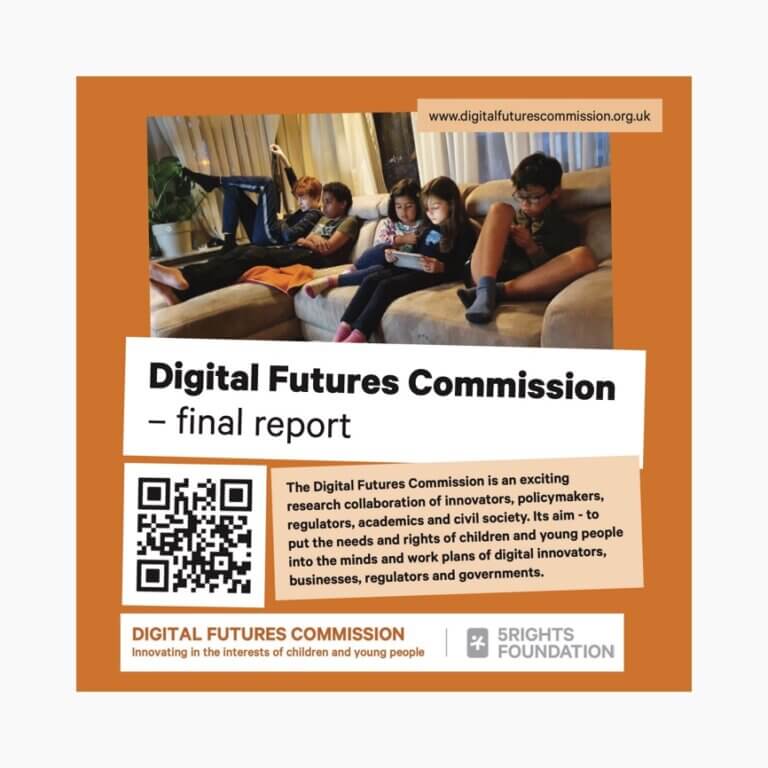
Read the final report of the Digital Futures Commission. This short report sums up three years’ work in the areas of play (including Playful by Design), beneficial uses of education data, and guidance for innovators (including Child Rights by Design).
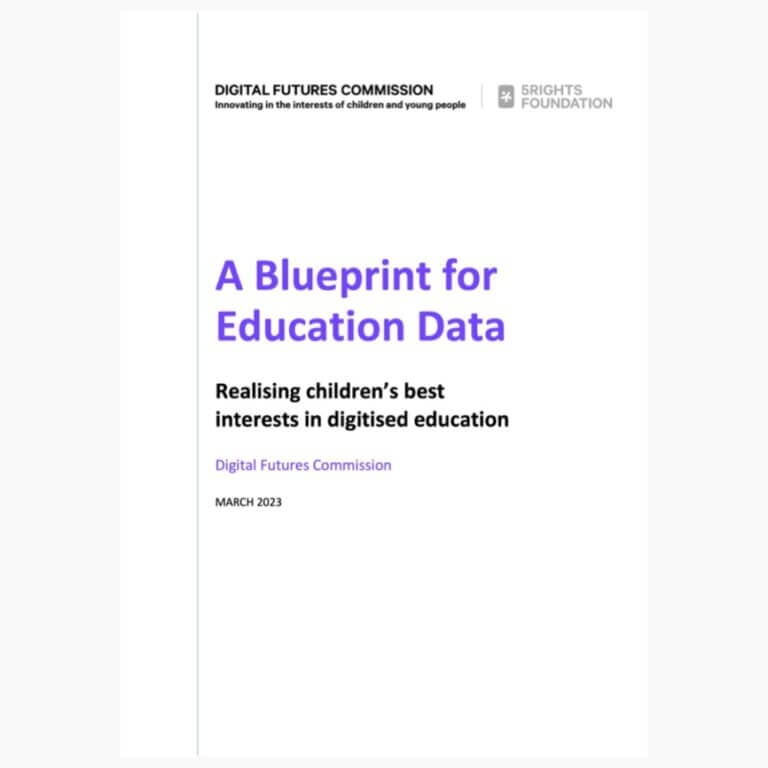
The Blueprint for Education Data sets out what good looks like for processing children’s data by EdTech in UK schools and other educational settings. It takes a child rights approach and calls for 10 certification criteria to be introduced by the Department of Education.
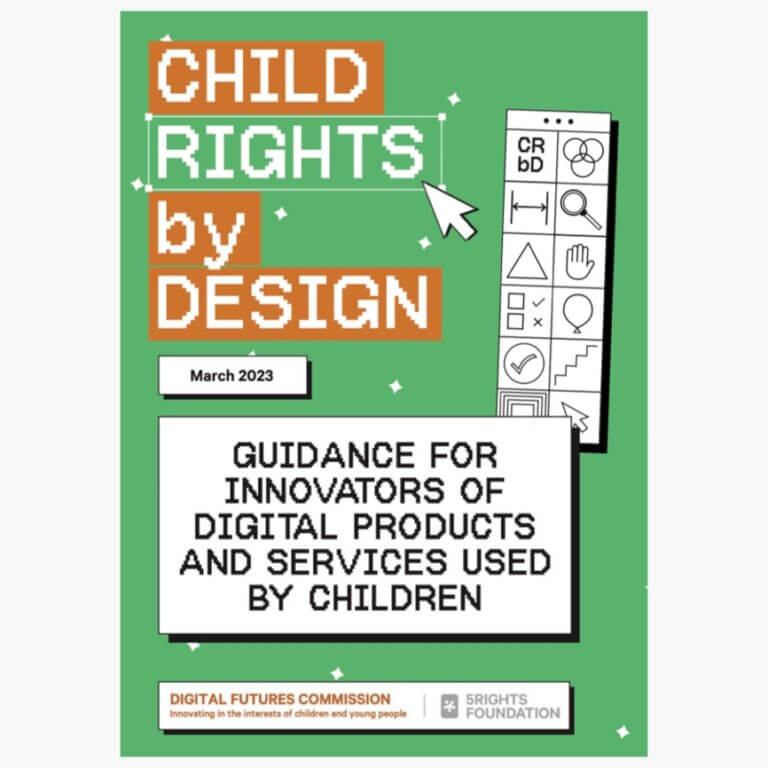
Child Rights by Design (CRbD) synthesises the 54 articles of the UN Convention on the Rights of the Child (UNCRC) into 11 design principles for digital products and services. This guidance for innovators of digital products and services likely to be used by or impact on children offers practical design guides, resources and an 11-point check list to help digital innovators embed children’s rights into their products and services.
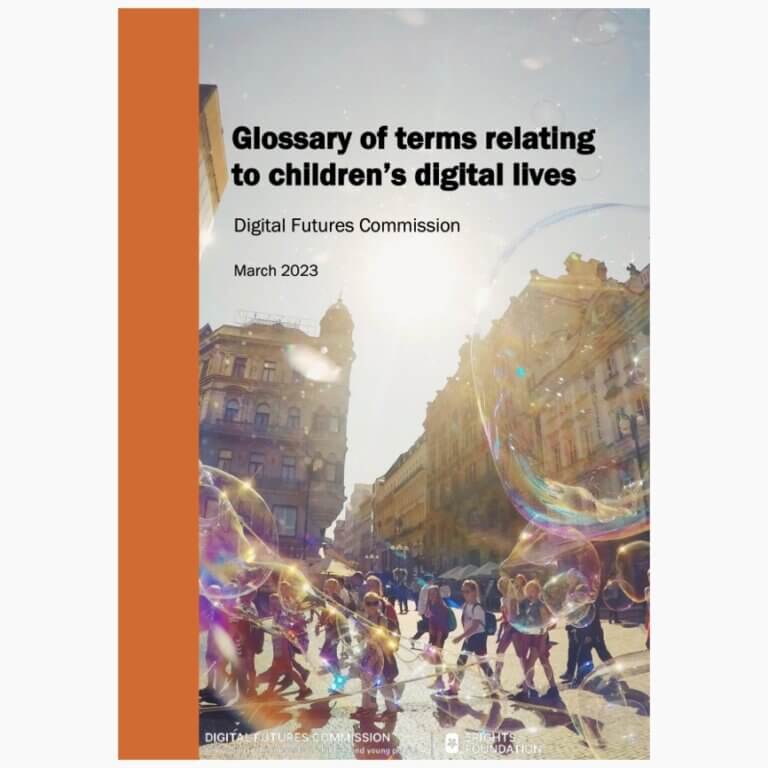
This glossary is for researchers, policymakers, and practitioners focusing on children’s digital lives in the areas of play, education, data, and innovation. It gathers definitions from various fields to create a useful resource for experts and non-experts working to safeguard and empower children in the digital age. Having a shared vocabulary can encourage constructive discussions about children’s rights and the digital landscape.
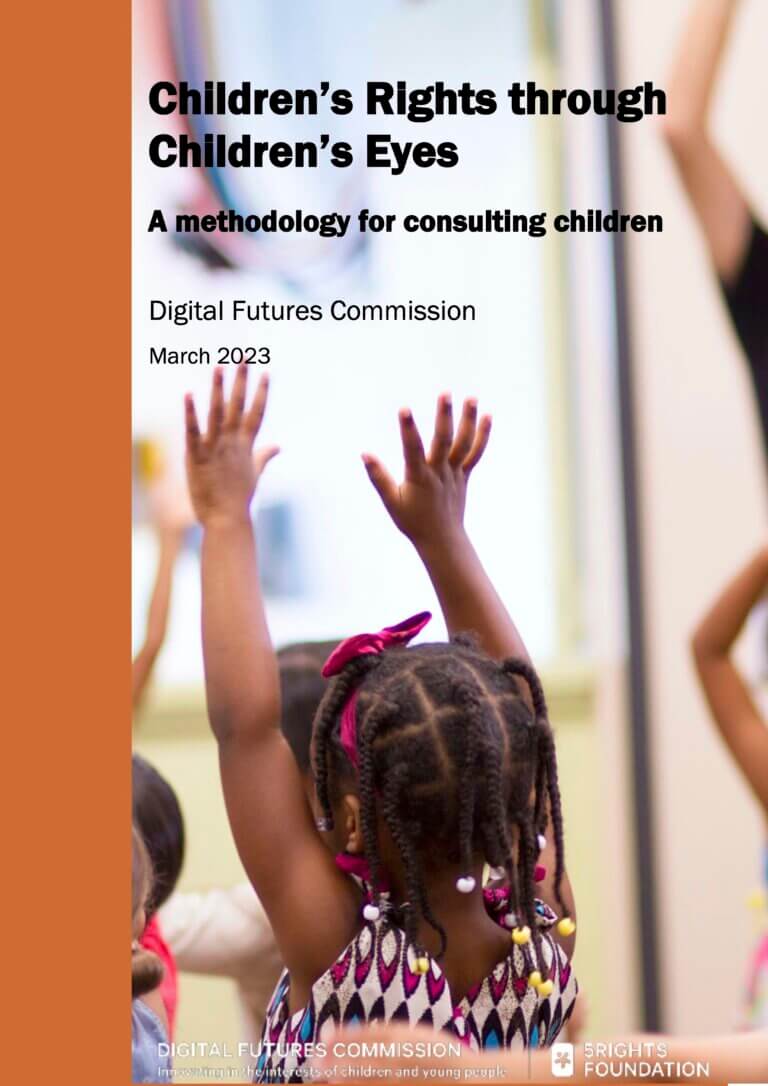
This report details how we consulted children in the summer of 2022 to gain children’s perspectives on how digital affordances enhance or undermine their rights and identify what needs to change to make the digital environment respectful of children’s rights by design.
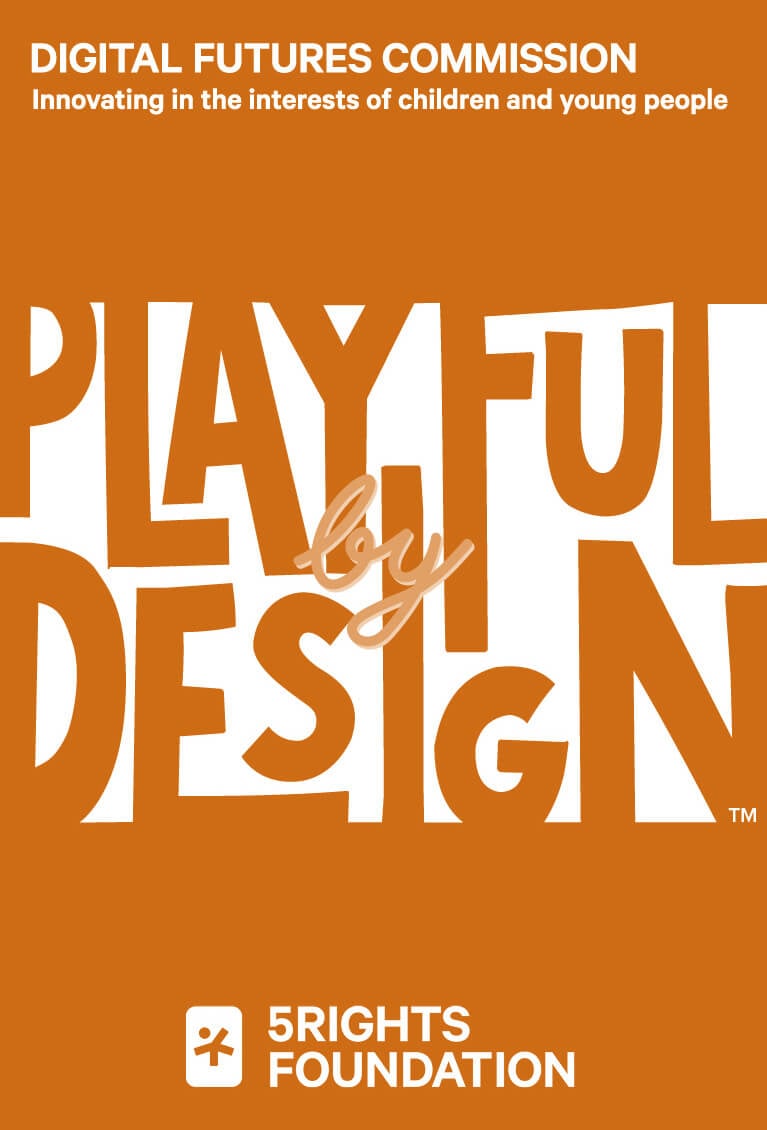
This Playful by Design Tool has been created by the Digital Futures Commission to support designers improve children’s opportunities for free play in a digital world, and to tackle the challenges in developing digital products and services that respect children’s rights.
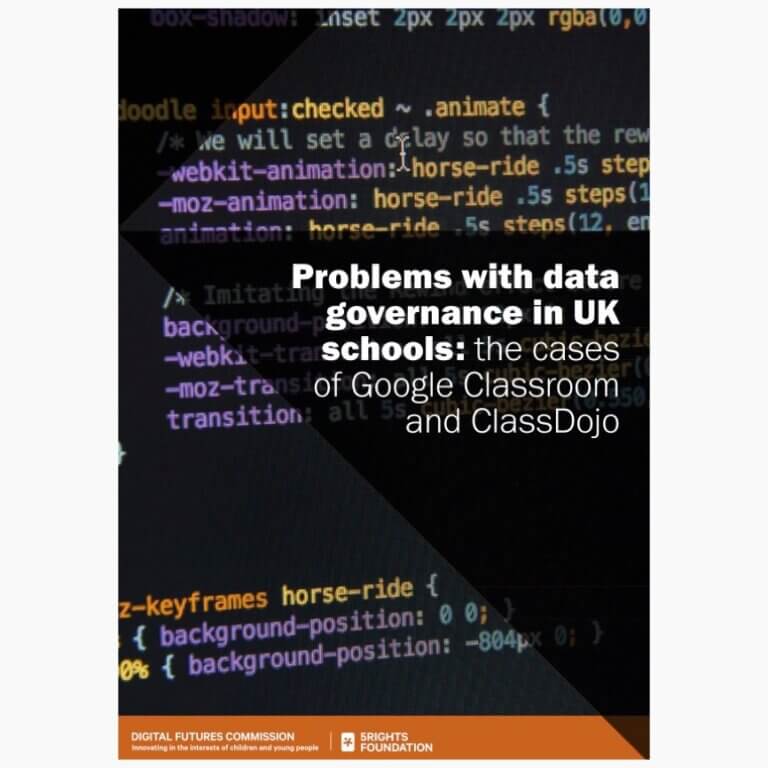
This report uncovers how EdTech including Google Classroom and ClassDojo fail to comply with data protection regulation, leaving children vulnerable to commercial exploitation. Following a detailed socio-legal analysis of the processing of education data, the report sets out how joined-up action is needed from Government, regulators and EdTech companies to ensure that commercial interests do not trump children’s best interests.
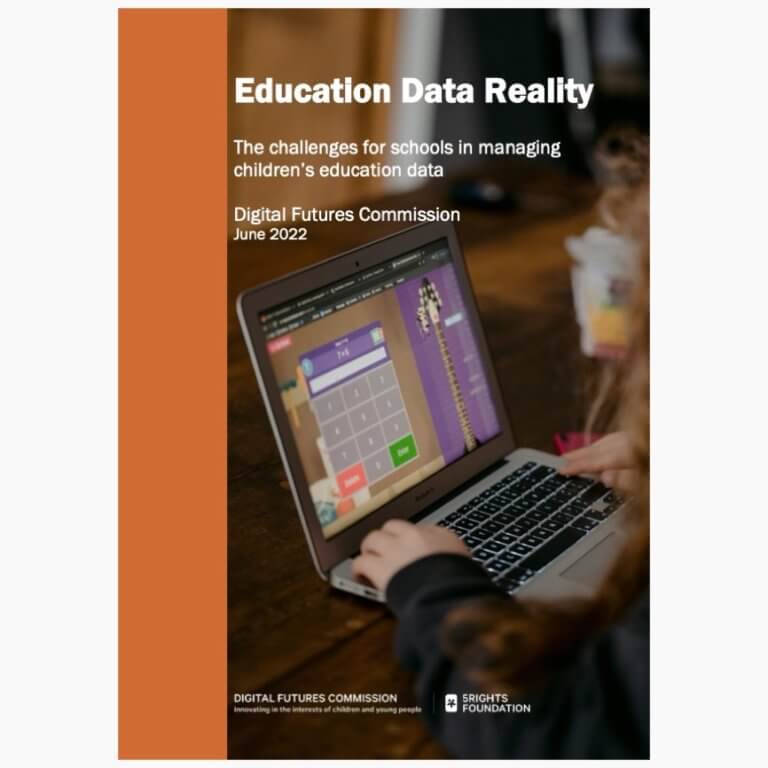
Managing EdTech and education data constitutes a significant and increasing pressure that individual schools must bear, resulting in uncertainties over – or more likely, failings in – the protection of children’s personal data and its uses for their benefit. This report reveals the problems concerning risks-benefits calculation in choosing EdTech, schools’ limited control over data and limited guidance and resources. The report voices schools’ calls for change in response to these problems.
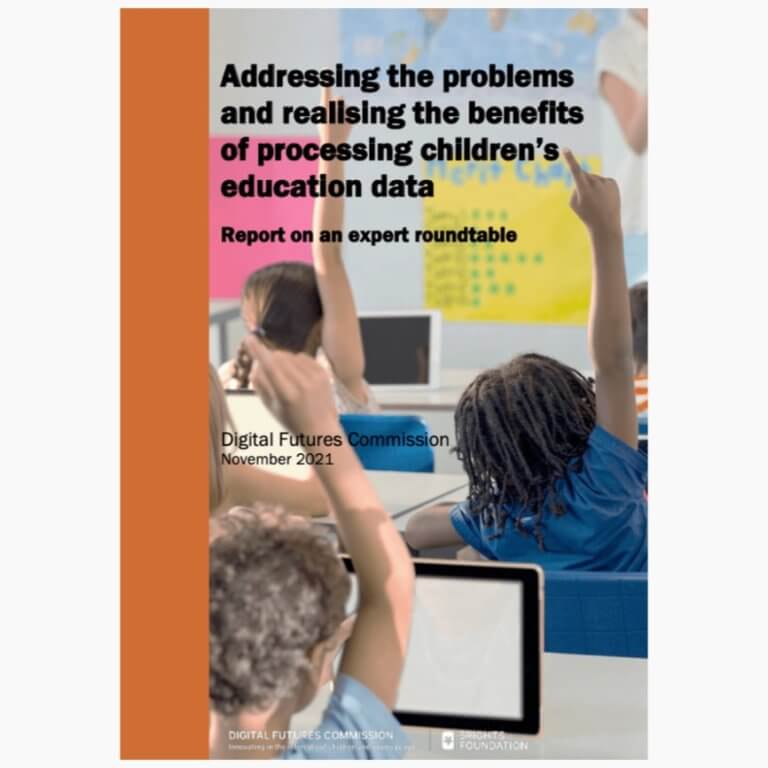
The Digital Futures Commission (DFC) held an expert roundtable discussion to discuss current governance and practice in processing children’s education data. It offers an insight into our unfolding work on beneficial uses of children’s education data and reflects work in progress. The discussion will shape the DFC’s ongoing research on governance gaps and stakeholder responsibilities and contribute to a blueprint for education data governance in 2022.
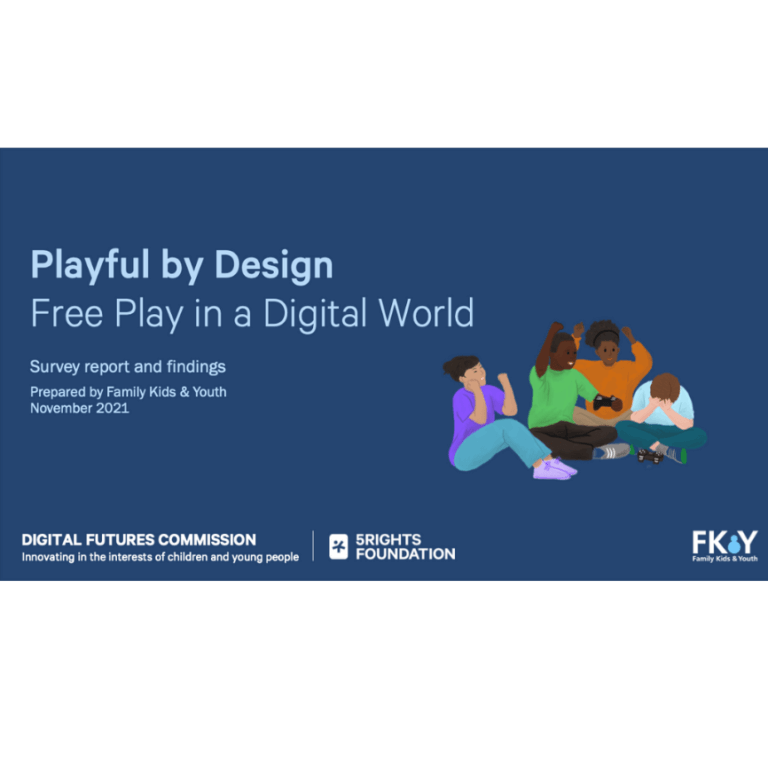
The overall objective of the survey research was to assess what apps and games children and young people are currently using, how these are used for play and what other activities including non-digital play they undertake, together with background information on their well-being.
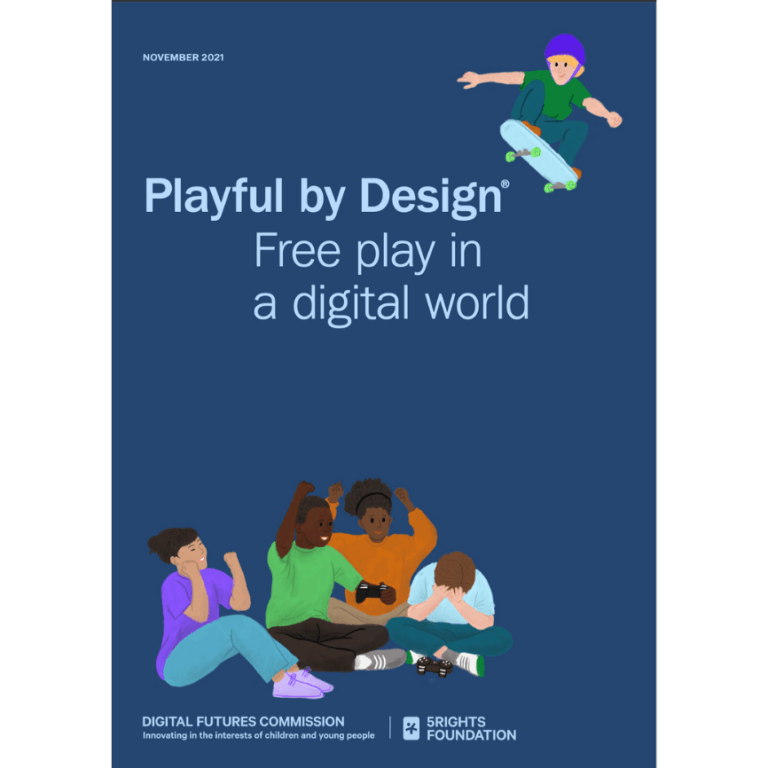
The report looks at one of the most important aspects of a child’s development – free play – and how platforms succeed and fail in facilitating it. The purpose is to improve children’s opportunities for free play and overcome the inhibiting factors in digital services that children report.
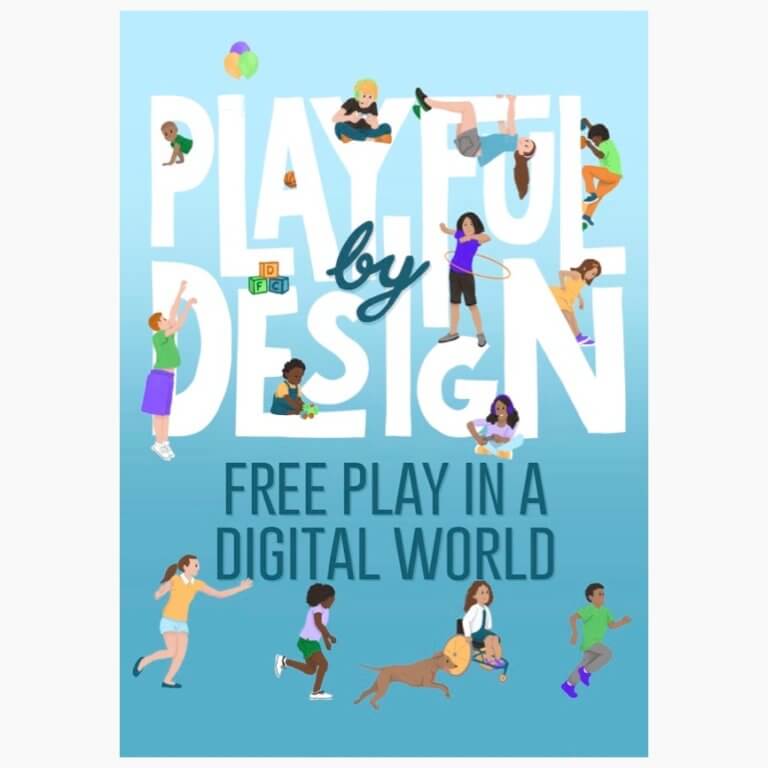
What are the qualities of free play that children enjoy in a digital world? Our new report sets out the 12 qualities of play, and shows how children have devised new ways to play during the pandemic, including with apps like Zoom. We call on those with the power to influence the digital environment to prioritise Playful by Design so that these qualities can thrive and benefit children.
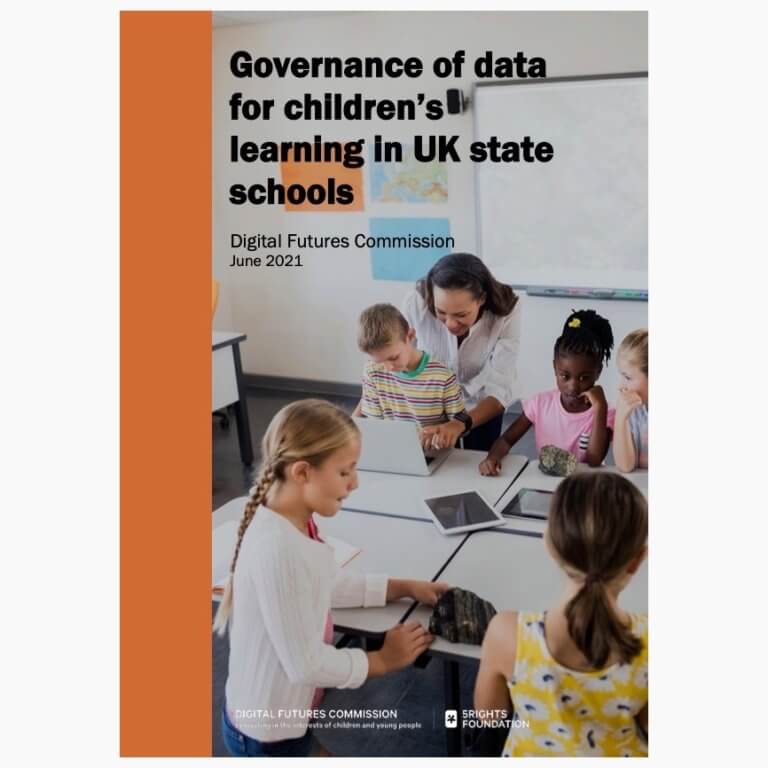
Governance of data for children’s learning in the UK state schools reports on significant regulatory and implementation gaps in data processing in education contexts. To bridge these gaps, the report identifies potential governance and oversight options for discussion. These options range from EdTech procurement rules for schools, legally binding (EdTech) sector-specific guidance, and codes of practice and standards.
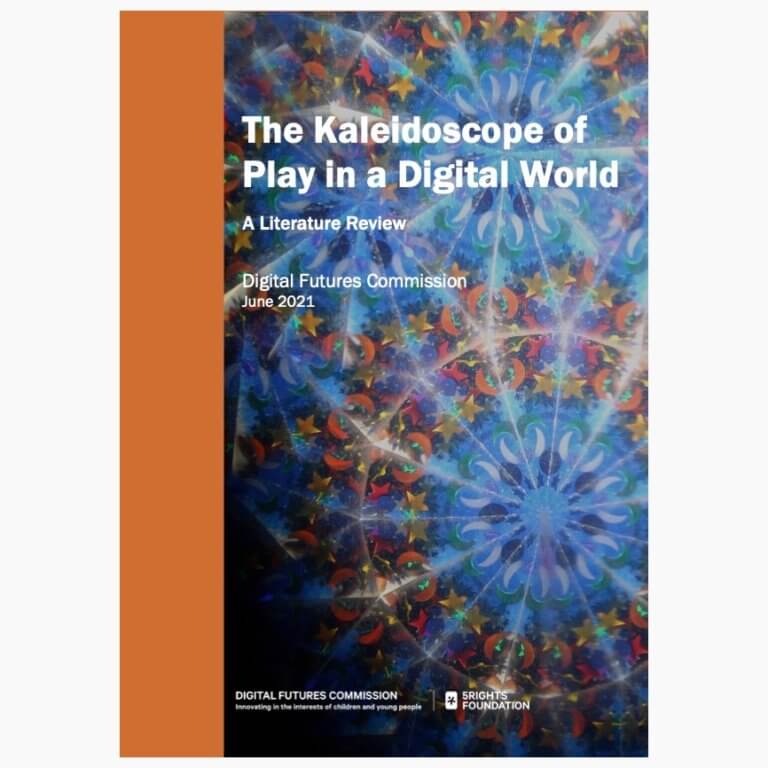
The Kaleidoscope of Play in a Digital World builds on the recent Digital Futures Commission report ‘A Panorama of Play‘ which identified and explored the characteristics of free play and its importance in children’s lives. This report now identifies the possibilities and challenges of children’s free play in a digital world.
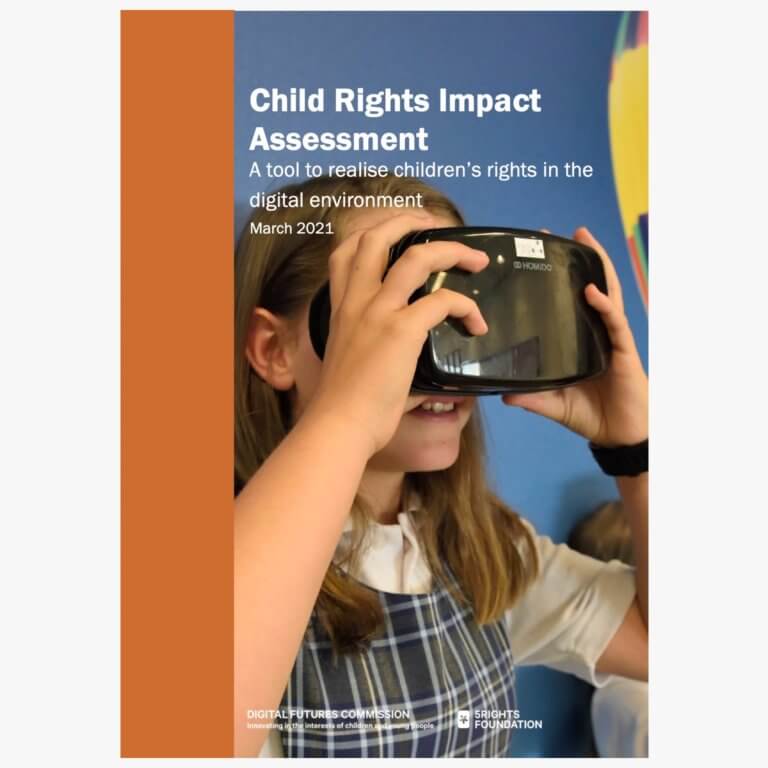
Child Rights Impact Assessment (CRIA) has been introduced as a tool for States and businesses to systematically consider child rights in their operations. Recognising CRIA’s potential, the Digital Futures Commission examines the feasibility and benefits of CRIA in the development and provision of digital products and services. This report identifies a pathway and resources for CRIA in the digital environment.
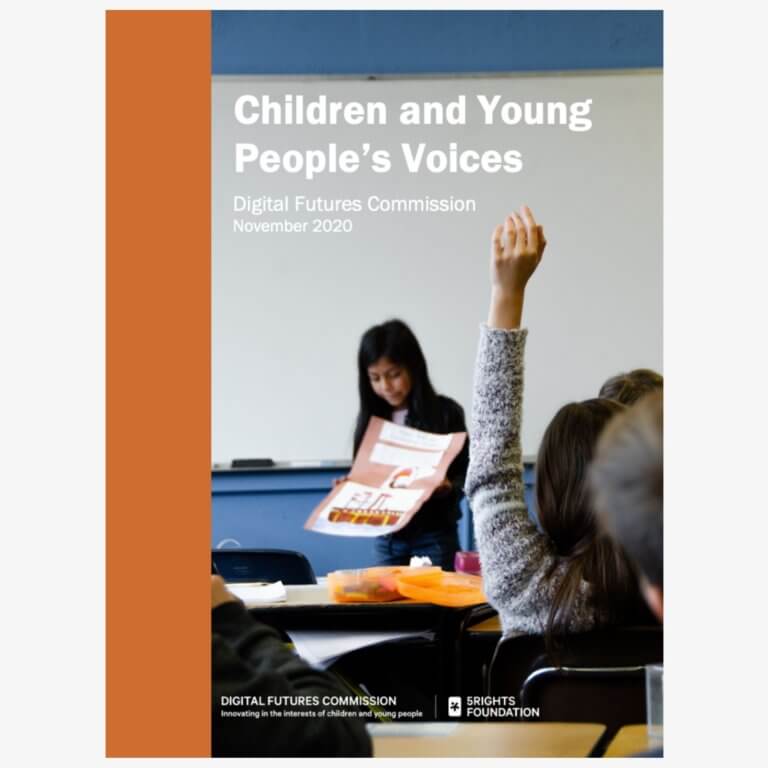
We identified recent UK-based consultations with children and young people relevant to the DFC’s work streams, also including some valuable older material and some qualitative research. This review highlights the voices of those aged up to 18 years old, selected from 18 consultations and related research.

Our first report, A Panorama of Play, reviews the rich history of ideas about free play and proposes the qualities of play that matter in a digital world.